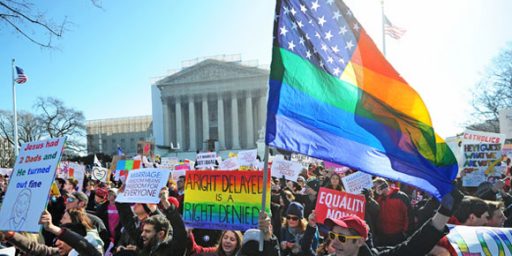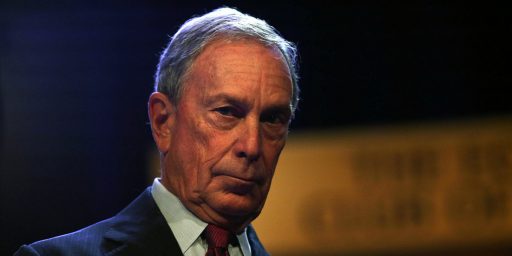Black Voters Up for Grabs in NYC Mayor’s Race
This year’s New York City mayoral race between Republican incumbent Michael Bloomberg and Democratic challenger Fernando Ferrer is unusual in that the “black vote” does not seem to exist in a cohesive fashion.
Black Voters, No Longer a Bloc, Are Up for Grabs in Mayor’s Race (NYT | RSS)
[…] Mr. Ferrer’s victory in the Sept. 13 Democratic primary has provided Latinos with an historic opportunity to flex their political muscle, as Mr. Ferrer tries to become the city’s first Hispanic mayor.
But to win City Hall, Mr. Ferrer’s strategists believe he must build a multiracial coalition, a feat requiring him to capture a significant percentage of the black vote. Interviews with dozens of black voters suggest that that may pose a formidable hurdle, as the nature of the black electorate changes, an early misstep by Mr. Ferrer threatens his support among blacks, and Mr. Bloomberg proves to be an attractive candidate to many of these voters.
Some remain angry over Mr. Ferrer’s remark in March that he did not believe that the fatal 1999 police shooting of Amadou Diallo, an unarmed African immigrant, was a crime. Others say they are satisfied with Mr. Bloomberg’s handling of schools and crime, and they see the mayor as a less polarizing figure than his Republican predecessor, Rudolph W. Giuliani. Still others say the nature of racial politics in the city has changed, and they are less likely to vote for a candidate because of his or her race or ethnicity.
A poll taken by The New York Times in August, before Mr. Ferrer won the primary, showed that the mayor had the support of 45 percent of registered black voters in a race against Mr. Ferrer, who had the support of 39 percent. A poll by Quinnipiac University after Mr. Ferrer’s primary victory reversed those numbers, putting Mr. Ferrer ahead among likely black voters. (Both polls had a margin of sampling error of roughly plus or minus 3 percentage points.)
The numbers suggest that these voters are up for grabs, evidence that the black vote has been undergoing a transformation and is becoming harder to predict.
“It’s the maturing of black politics,” said Walter Fields, vice president for political development at the Community Service Society, a liberal research and advocacy group. “No one expects white consensus on any one political issue, and they shouldn’t expect it in the black community. I think it’s very healthy when you have this discourse going.”
As the city’s black population has grown more ethnically diverse and as the black middle class has expanded, the black electorate has become increasingly fragmented, political consultants and academics said. One example of this shift was the failure of C. Virginia Fields, one of the few black women to run for mayor in the city’s history, to inspire widespread excitement among black voters in the Democratic primary.
“You cannot take it for granted,” said Bill Lynch, a political consultant, of the black vote. Mr. Lynch, who supports Mr. Ferrer and was a deputy mayor under Mayor David N. Dinkins, added: “I don’t care who you are. You have to work for it. You have to put a message out there that connects with them.”
John H. Mollenkopf, a demographics expert and political science professor at the City University of New York Graduate Center, said black voters typically represent roughly 25 percent of the overall electorate in the city. In the 2001 election, Mr. Bloomberg captured 25 percent of the black vote after a racially divisive Democratic runoff in which Mark Green’s campaign was accused of attacking the Rev. Al Sharpton’s support for Mr. Ferrer. Mr. Giuliani captured 20 percent of black voters in his 1997 re-election bid, a vast improvement over 1993, when he got just under 5 percent against the city’s first black mayor, Mr. Dinkins.
[…]
The split among black voters has played out on an intensely personal level, between husbands and wives, pastors and their congregations, fathers and sons. Pierre Sutton, chairman of Inner City Broadcasting Corporation, supports Mr. Bloomberg. He is the son of Percy E. Sutton, a former Manhattan borough president and an elder statesman of Harlem politics. The elder Mr. Sutton endorsed Mr. Ferrer on Friday.
This split should not be surprising. After all, white voters disagree with one another all the time. Certainly, the “black experience” is less unifying than ever, especially in a city where a sizable percentage of the “black” vote consists of recent African immigrants for whom slavery and Jim Crow are not part of the equation. Still, it’s nice to see voters deciding their politics as individuals rather than as a mass herd.



